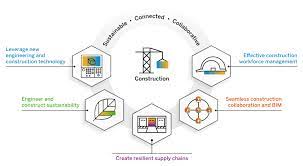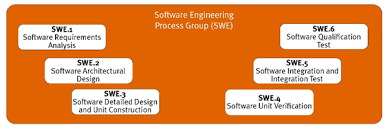Driving Innovation Forward: The Role of a Tesla Software Engineer
Tesla Software Engineer: Driving Innovation Forward
Working as a software engineer at Tesla is a dream for many tech enthusiasts. Tesla, known for its groundbreaking electric vehicles and innovative technology, offers a unique opportunity for software engineers to be at the forefront of automotive innovation.
As a Tesla software engineer, you are not just developing code; you are shaping the future of transportation. Your work directly impacts the performance, safety, and user experience of Tesla vehicles.
One of the key responsibilities of a Tesla software engineer is to develop and optimize the software that powers Tesla’s electric vehicles. This includes everything from designing user interfaces to implementing advanced autonomous driving features.
Collaboration is at the core of Tesla’s engineering culture. Software engineers work closely with hardware engineers, designers, and other team members to integrate software seamlessly with Tesla’s cutting-edge hardware components.
Continuous learning and growth are essential aspects of being a Tesla software engineer. With rapid advancements in electric vehicle technology and autonomous driving systems, engineers at Tesla are constantly challenged to push boundaries and think outside the box.
At Tesla, innovation is not just encouraged; it is expected. Software engineers are empowered to explore new ideas, experiment with emerging technologies, and contribute to projects that have the potential to revolutionize the automotive industry.
In conclusion, being a software engineer at Tesla is not just a job; it’s an opportunity to be part of a movement towards sustainable transportation and technological advancement. If you are passionate about cutting-edge technology and want to make a real impact in shaping the future, joining Tesla as a software engineer could be the perfect career choice for you.
Top Questions About Software Engineering Careers at Tesla: Salaries, Roles, and Opportunities
- Which engineer has highest salary in Tesla?
- How to join Tesla as software engineer?
- How much are Tesla engineers paid?
- What is the salary of Software Engineer in Tesla?
- What do software engineers do in Tesla?
- Does SpaceX have software engineers?
- Does Tesla have software engineers?
Which engineer has highest salary in Tesla?
In Tesla, the engineer with the highest salary is typically the software engineer specializing in autonomous driving systems. These engineers play a crucial role in developing and optimizing the software that enables Tesla vehicles to achieve advanced autonomous capabilities. Due to the specialized skills and expertise required for this role, coupled with the high demand for talent in this field, autonomous driving software engineers at Tesla often command some of the highest salaries within the company.
How to join Tesla as software engineer?
To join Tesla as a software engineer, candidates typically need to start by researching open positions on Tesla’s careers website and applying for relevant roles that match their skills and experience. It is important to tailor your resume and cover letter to highlight your software engineering expertise, including any relevant projects, programming languages, and technologies you have worked with. Networking with current or former Tesla employees, attending tech events where Tesla recruiters may be present, and preparing for technical interviews are also crucial steps in the application process. Demonstrating a passion for innovation, a strong understanding of electric vehicles and autonomous driving technology, and a willingness to contribute to Tesla’s mission of accelerating the world’s transition to sustainable energy can greatly enhance your chances of landing a software engineering role at Tesla.
How much are Tesla engineers paid?
When it comes to the compensation of Tesla engineers, the salaries are often competitive and commensurate with the industry standards for tech professionals. While specific salary figures can vary based on factors such as experience, job role, and location, Tesla is known to offer attractive packages to its engineers. Additionally, Tesla may provide other benefits such as stock options, bonuses, and perks that contribute to a comprehensive compensation package for their employees. Overall, working as a software engineer at Tesla can be financially rewarding along with the opportunity to be part of groundbreaking innovations in the automotive and technology sectors.
What is the salary of Software Engineer in Tesla?
The salary of a Software Engineer at Tesla can vary based on factors such as experience, location, and specific role within the company. Generally, Tesla offers competitive compensation packages to attract top talent in the tech industry. Software Engineers at Tesla can expect to receive a salary that aligns with industry standards and reflects their skills and contributions to the company’s innovative projects. It is advisable for individuals interested in pursuing a career as a Software Engineer at Tesla to research current market trends and reach out to the company directly for the most up-to-date information on salary expectations.
What do software engineers do in Tesla?
Software engineers at Tesla play a crucial role in driving innovation and shaping the future of transportation. In Tesla, software engineers are responsible for developing and optimizing the software that powers Tesla’s electric vehicles. This includes designing user interfaces, implementing advanced autonomous driving features, and collaborating closely with hardware engineers and designers to integrate software seamlessly with cutting-edge hardware components. Continuous learning, innovation, and a passion for pushing boundaries are key aspects of the work of software engineers at Tesla as they contribute to projects that have the potential to revolutionize the automotive industry.
Does SpaceX have software engineers?
Yes, SpaceX does have software engineers. Software engineering plays a crucial role in the development of SpaceX’s aerospace technologies, including rockets, spacecraft, and satellite systems. SpaceX’s software engineers work on a wide range of projects, from designing flight control systems to developing software for autonomous landing and docking procedures. Their expertise is instrumental in ensuring the success and safety of SpaceX’s missions to space. By leveraging cutting-edge technology and innovative software solutions, SpaceX continues to push the boundaries of space exploration with the help of its talented team of software engineers.
Does Tesla have software engineers?
Yes, Tesla has a dedicated team of software engineers who play a crucial role in developing and optimizing the software that powers Tesla’s innovative electric vehicles. These software engineers work on a wide range of projects, from designing user interfaces to implementing advanced autonomous driving features. Their expertise and creativity contribute to shaping the cutting-edge technology that sets Tesla vehicles apart in the automotive industry. Tesla’s software engineers are at the forefront of driving innovation and pushing boundaries in the realm of sustainable transportation.










